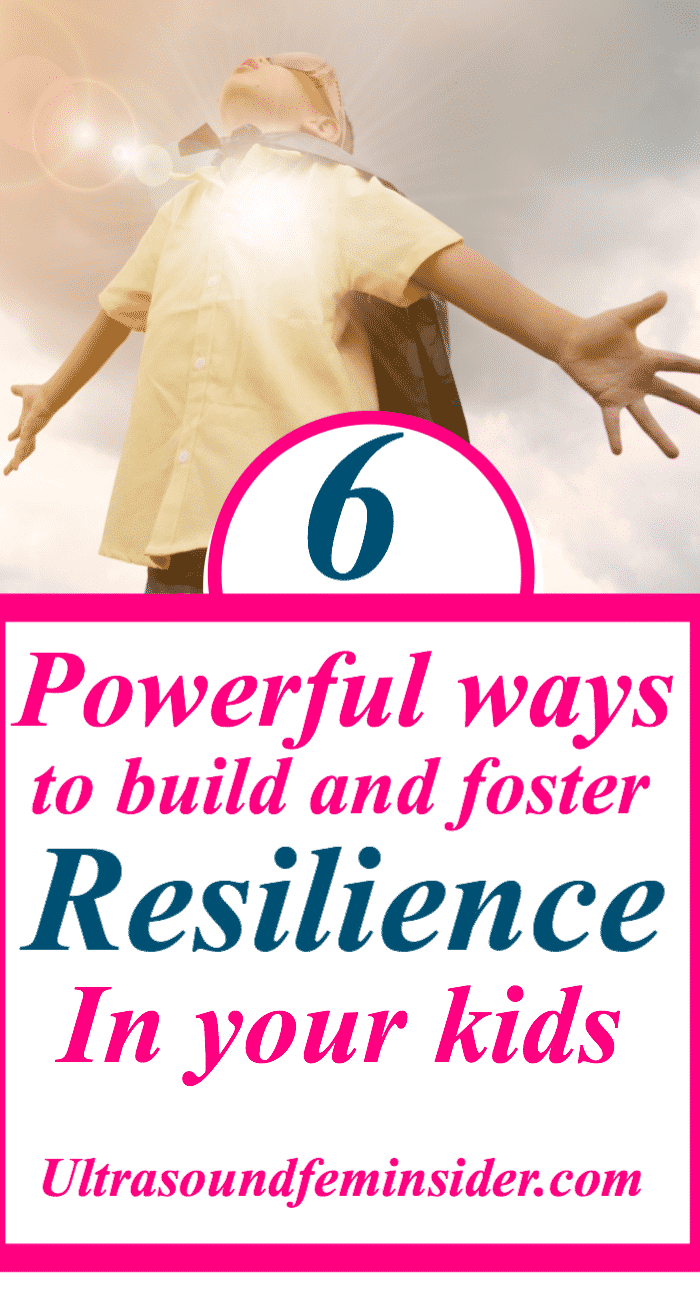As a parent, one of the biggest challenges you will have is to protect your children from danger and difficult situations. Since they are very small and even after they grow up. But no matter how good you are in this task, you can’t protect your child from absolutely all the difficult things in life. The reality is that, you can’t have your little ones buried in a glass bubble, and even if you could, pediatricians, teachers, and other experts recommend that our children must go through some situations alone, to learn life lessons and become strong. The best thing you can do is prepare them and give them the tools to be strong on their own. In this article, I am going to give you those tools to How to build resilience in your kids.
How to build resilience in your kids.
First let’s talk about, what is resilience?
Resilience is the capacity to rebound from setbacks. Is by definition, the opposite of vulnerability.
New researches and studies have found that the home environment has a powerful impact on the way children will develop emotionally. Studies have also shown, that by 2 to 3 years old, a child’s early life experiences are already shaped their level of resilience or vulnerability to adverse life events for the rest of their lives.
Some children may need more support than others to confront and deal with difficult and stressful situations. To help strengthen your child’s resilience, you need to create a nurturing environment for your child at birth and throughout the early childhood years. Your children need to know, that their parents and other adults in their lives believe and love them unconditionally, no matter what.
Sharing is caring!

Learn how to build your child’s resilience with these tips here!
Competence.
Encourage your child to focus on his strengths. And always point how well he/she has managed hard life situations in the past. Remember, if you protect your child from all difficult situations in life, you are sending him the message that you don’t think he can overcome a difficult situation alone. This behavior can harm the normal development of your child. Remember, over time, children gradually build their ability to cope. You just need to give it time.
Connection.
You must start by creating a home that encourages physical safety and emotional security. Schedule family time that can build and foster healthy relationships, that your child can rely on, no matter how hard the circumstances get. Create family traditions like having regular meals together as a family, read a bedtime story, a hobby that all family members enjoy equally, and foster in-person time rather than screen-time for your children.
Confidence.
Boost your child’s confidence by promoting their best qualities. Acknowledge when they do something good. Praise for the big achievements and the effort. These habits will help your child build their sense of confidence and control.
Character and morals.
It is never too early to instill the set of values and morals that are important to you, in your children, that will help your child learn right from wrong. And make sure that you are showing a caring attitude toward others. Remind them, that their behavior, can affect others in a positive or negative way. And let them know how pleased you are when they respond with kindness and fairness to a difficult situation. This type of behavior needs to be modeled by all adults in the family first, remember, actions speak louder than words.
Contribution to society.
Let your child knows that the world is a better place because he is in it and that he can make the difference in other peoples lives, This behavior needs to be thought and modeled by you as well, set a good example by treating others with compassion and generosity. Acts of kindness such as:
Bringing food to the homeless, or gifts to less fortunate children, can be a great start.
When your child realizes that he/she can make the difference in other’s people’s lives, as well as on his own. This will give him more confidence to rebound from hard experiences in life.
Coping tools.
Model yourself and give your child the right tools to cope effectively with stress. Communication is one of the most important coping tools. And, it all starts at home. You must create a safe environment, where your child feels free to express feelings of stress and frustrations. Another critical coping tool identifies passions, hobbies, or sports that they truly enjoy. These healthy distractions also help them to turn off toxic levels of stress.
Encourage faith.
Religion is a powerful source to instill in your children the ability to adapt to the adverse situations of life. Having faith has been my driving force in times of distress, and I always try to instill in my children faith and love in God.
Related posts:
Parenting a teenage boy. parenting advice.
The 5 Key tips to raise responsible children.
Self-care routine for busy moms, the routine that saved my life.
Tips to practice mindfulness as a parent, the benefits of mindfulness.
Other important things to remember:
- Your presence and guidance will provide a buffer against the most serious stressful times.
- Each challenge in your kid’s life is also an educational opportunity to teach skills that your child can use with the next challenge.
- Be aware that: Traumatic home experiences such as abuse (emotional, physical or sexual), neglect (emotional or physical), and other several types of house dysfunction situations such as domestic violence, criminal behavior, parental substance abuse or mental illness, can impact in a very negative way the life of your child. A new study shows that children that grow in this type of environment have a greater chance of suffering from depression, substance abuse, sexual promiscuity, and suicide attempts.
Conclusion about How to build resilience in your kids.
Every child is born with some ability to cope with stress and setbacks. But all children can increase their resilience with help from parents. A resilience child is confident that he will receive what he needs to go through a stressful situation. And they are also confident that others will be there, to protect and assist them to face problems in life.
I hope this article inspires you to help your child be a resilient one, feel free to comment below if you have any experiences with this topic.
Stay tuned for more posts like this one.
Zadi, xo










Such an important point that you’ve mentioned, We have become so protective about Children these days that we don’t let them face hardships on their own. Facing the world is an important aspect of growing up and learning from your own experiences, hence resilience becomes a very important part of this process.
Hi Steph, I am glad to have you here. Yes, I agree with you 100%. Based on my own experience I can tell that learning is a process and going through hard times make and shape the way we are in adulthood. As a parent I also tend to protect my kids as much as I can but never taking away from them the opportunity to learn lessons. That’s a healthy part of life as well.
[…] How to build resilience in your kids. […]
[…] How to build resilience in your kids. […]
[…] How to build resilience in your kids. […]
[…] How to build resilience in your kids. […]
Great information, very useful.
Thanks
[…] How to build resilience in your kids. […]